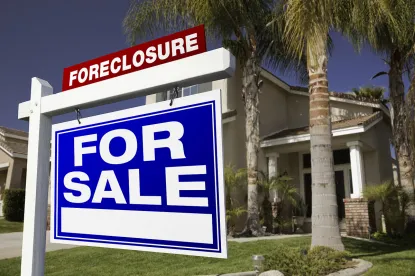Governor Gavin Newsom just signed a number of housing bills into law that were passed by the Legislature this session ending on August 31, 2020. Due to the severe scheduling constraints placed on lawmakers by the COVID-19 pandemic among other challenges, the Legislature was only able to pass a small number of bills related to housing and tenant protections, despite beginning the year with over 100 bills under consideration. Most notably, some of the most ambitious pieces of legislation including five of the bills in the State Senate’s Housing Production Package all failed to pass before the midnight deadline on August 31, 2020. We will continue to monitor the Legislature’s efforts to spur additional housing production in California as we head into the Fall recess and the new legislative session starting on December 7, 2020. Below is a summary of the bills signed by the Governor on August 28, 2020. These bills take effect on January 1, 2020, unless otherwise noted.
COVID-19 Emergency Relief
AB 3088 – COVID-19 Emergency Relief (Chiu) would, between September 1, 2020, and January 31, 2021, protect tenants from evictions due to COVID-19 related financial hardship, provided that the tenant pays at least 25% of the rent due to the landlord. Landlord may eventually recover all unpaid rent from the tenant in small claims court, but it can never be the basis for an eviction. This bill is effective as of September 1, 2020.
Housing Production
AB 168 – Tribal Resources (Aguiar-Curry) would require local governments to conduct a scoping consultation with Native American Tribes before processing a SB 35 application to determine if the proposed development could impact a potential tribal cultural resource. The bill would make a proposed project ineligible for streamlining under SB 35 if the Native American Tribe does not agree that no potential tribal cultural resource would be affected by the proposed development. This bill will take effect immediately.
AB 725 – Moderate-Income Housing (Wicks) would require that at least 25% of a metropolitan jurisdiction’s share of the regional housing need for moderate-income housing be allocated to sites with zoning that allows at least 4 units of housing, but no more than 100 units per acre of housing. The bill would require that at least 25% of a metropolitan jurisdiction’s share of the regional housing need for above moderate-income housing be allocated to sites with zoning that allows at least 4 units of housing. This bill will take effect on January 1, 2022.
AB 1851 – Parking Lot of Religious Institutions (Wicks) would prohibit a local jurisdiction from denying a housing development project proposed by a religious institution, or a developer working with a religious institution, solely on the basis that the project will reduce the total number of parking spaces available at the place of worship, provided that the total reduction does not exceed 50% of existing parking spaces. The bill would authorize a local jurisdiction to require up to one parking space per unit for a religious institution affiliated housing development project.
AB 2345 – Density Bonus Law (Gonzalez and Chiu) would allow local jurisdictions the authority to grant additional concessions/incentives above and beyond what is currently provided under state Density Bonus Law if a project exceeds maximum density limits. Proposed changes also include a uniform method to measure the distance between a major transit stop and a project location in order to maximize the number of eligible properties within a half-mile radius of a major transit stop. Lastly, the bill proposes to reduce maximum parking requirements for specified eligible projects, and would eliminate parking requirements for 100 percent affordable projects and senior housing projects that meet specified criteria.
AB 3182 – Right to Rent in HOAs / ADU Permits (Ting) would prohibit a Home Owners Association (“HOA”) from adopting or enforcing a provision that restricts the rental or lease of a house or condo, except that the HOA may restrict short-term rentals of 30 days or less. The bill would deem a permit application for the creation of an accessory dwelling unit (“ADU”) or junior accessory dwelling unit (“JADU”) approved if the local agency has not acted upon the completed application within 60 days.
AB 3308 – Teachers Housing (Gabriel, Mullin, and Quirk-Silva) would permit school districts to restrict occupancy on land owned by school districts to teachers and school district employees of the school district that owns the land, including permitting school districts and developers in receipt of tax credits designated for affordable rental housing to retain the right to prioritize and restrict occupancy on land owned by school districts to teachers and school district employees.
SB 1030 – Housing Omnibus (Wiener) provides minor technical fixes to existing housing legislations. For example, the bill would revise the definition of “deemed complete” under the Housing Accountability Act to include the submission of a completed application if the applicant has not submitted a preliminary application. This bill will take effect immediately.
Tenant & Homeowner Rights
AB 2405 – Right to Housing (Burke, Chiu, and Gonzalez) would declare that it is the policy of the state that every individual has the right to safe, decent, and affordable housing, and would require the policy to consider homeless prevention, emergency accommodations, and permanent housing, as specified. The bill would require all relevant state agencies to consider that state policy when revising, adopting, or establishing policies, regulations, and grant criteria. This bill will take effect on January 1, 2026 and is subject to an appropriation of funds in the annual budget.
AB 2463 – Ban on Forced Sale of Home Due to Consumer Debt (Wicks) would prohibit a sale under execution of a judgement lien of a judgment debtor’s principal place of residence based on a consumer debt unless that debt was secured by that principal place of residence at the time it was incurred.
AB 2782 – Mobile Home Rent Control (Stone) would allow rent control on mobile home leases that are more than 1 year long. This bill will take effect on January 1, 2025.
SB 1079 – Foreclosure Sales (Skinner) would require a seller to receive offers from tenants and potential owner-occupiers in a foreclosure sale. The bill would prohibit the bundling of properties during an auction. This bill will be operational between January 1, 2021 and January 1, 2026.
SB 1157 – Optional Credit Reporting for Tenants (Bradford) would allow tenants in certain buildings who want to build a credit history to request that their landlord report their rent payments to a credit agency. This bill will be operational between July 1, 2021 and July 1, 2025.
SB 1190 – Right to End Lease Early for Victims of Violent Crime (Durazo and Rubio) would authorize a tenant to terminate their tenancy without penalty because an immediate family member, as defined, was the victim of a crime, and would expand the list of eligible crimes to include, among others, a crime that caused bodily injury or death. The bill would additionally authorize a tenant to attach to the notice any form of documentation that reasonably verifies that the qualifying crime or act occurred.





 />i
/>i
